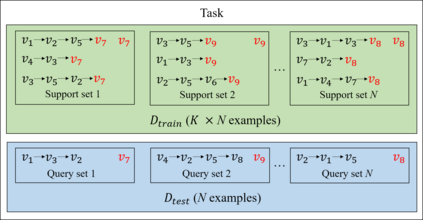This paper introduces DeltaKWS, to the best of our knowledge, the first $\Delta$RNN-enabled fine-grained temporal sparsity-aware KWS IC for voice-controlled devices. The 65 nm prototype chip features a number of techniques to enhance performance, area, and power efficiencies, specifically: 1) a bio-inspired delta-gated recurrent neural network ($\Delta$RNN) classifier leveraging temporal similarities between neighboring feature vectors extracted from input frames and network hidden states, eliminating unnecessary operations and memory accesses; 2) an IIR BPF-based FEx that leverages mixed-precision quantization, low-cost computing structure and channel selection; 3) a 24 kB 0.6 V near-$V_\text{TH}$ weight SRAM that achieves 6.6X lower read power than the foundry-provided SRAM. From chip measurement results, we show that the DeltaKWS achieves an 11/12-class GSCD accuracy of 90.5%/89.5% respectively and energy consumption of 36 nJ/decision in 65 nm CMOS process. At 87% temporal sparsity, computing latency and energy/inference are reduced by 2.4X/3.4X, respectively. The IIR BPF-based FEx, $\Delta$RNN accelerator, and 24 kB near-$V_\text{TH}$ SRAM blocks occupy 0.084 mm$^{2}$, 0.319 mm$^{2}$, and 0.381 mm$^{2}$ respectively (0.78 mm$^{2}$ in total).
翻译:暂无翻译

























